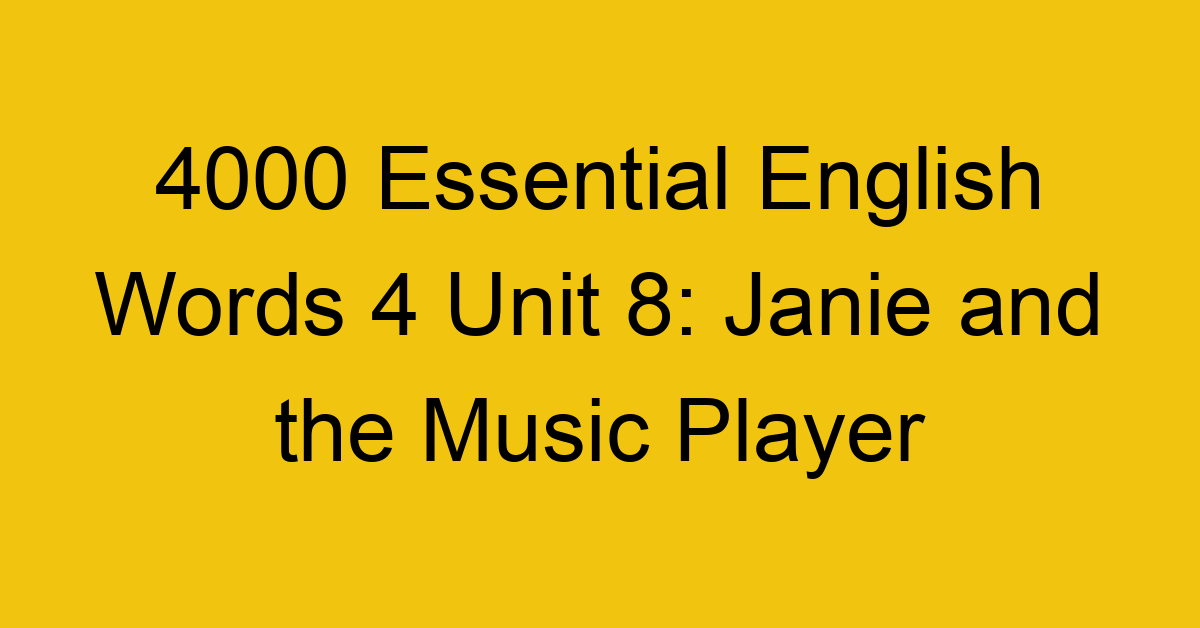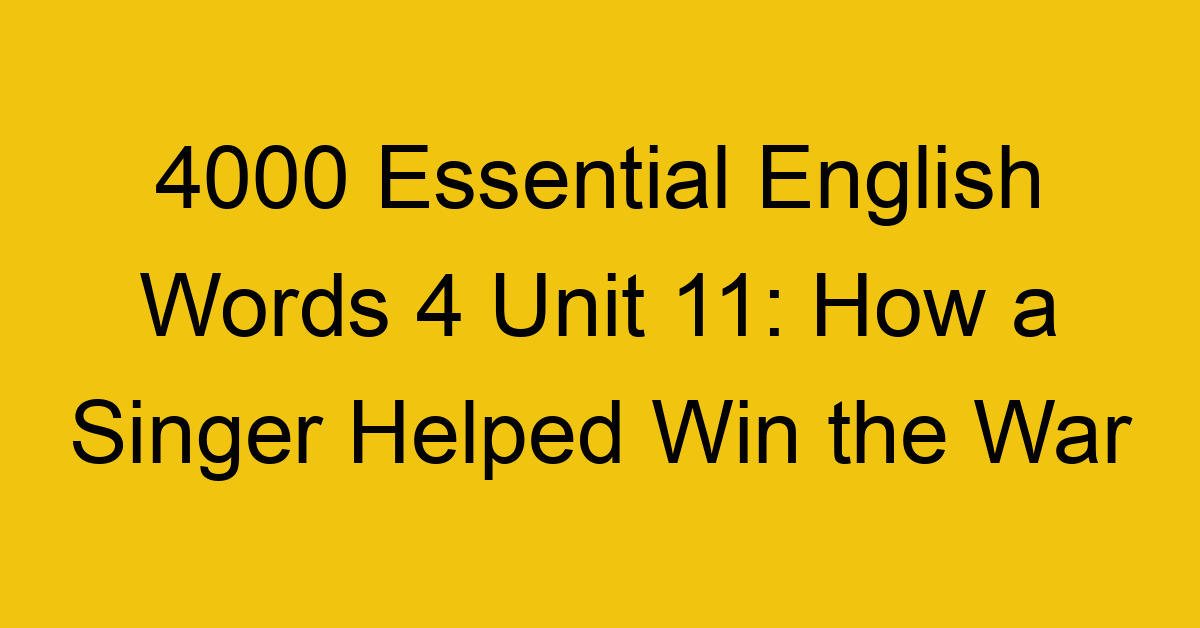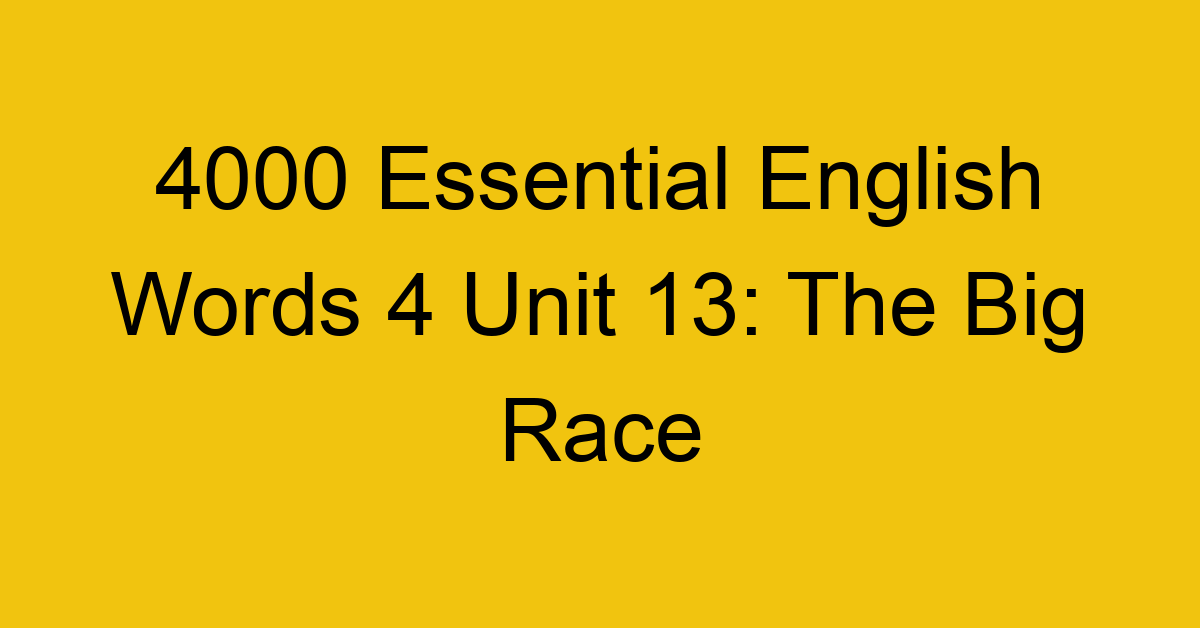4000 Essential English Words 4 Unit 10: Anton’s Great Discovery
Word List
- animate [ˈӕnəmit] adj.
When something is animate, it has life.
→ Rocks and machines are not animate things.
- classify [ˈklӕsəfai] v.
To classify things is to put them into groups based on their type.
→ The biologist classified the plant as a completely new species.
- concede [kənˈsiːd] v.
To concede is to admit that something is true against your wish.
→ The student conceded that he had cheated on the test.
- concept [ˈkɒnsept] n.
A concept is an idea about something.
→ I learned some concepts of molecules before working in the science lab.
- construct [kənˈstrʌkt] v.
To construct something means to make or build it.
→ The men used wood and metal to construct a house.
- decade [ˈdekeɪd] n.
A decade is a period often years.
→ She celebrated her three decades of work with the company.
- diagram [ˈdaiəgrӕm] n.
A diagram is a simple drawing that explains what something is or how it works.
→ By following the diagram, I was able to put the desk together.
- ferry [ˈferi] n.
A ferry is a boat that carries passengers over short distances.
→ The ferry took the people across the lake.
- handy [ˈhændi] adj.
If something is handy, it is useful.
→ An eraser is handy if you make a lot of mistakes.
- isolate [ˈaisəleit] v.
To isolate is to separate one person or thing from a group.
→ The teacher isolated the bad child from the class before talking with her.
- longing [ˈlɔ(:)ŋɪŋ] n.
A longing is a strong feeling of wanting.
→ Since he skipped breakfast, he had a longing for food all morning.
- numerous [ˈnjuːmərəs] adj.
If something is numerous, there are many of those things.
→ It was hard to drive fast since there were numerous holes in the road.
- particle [ˈpaːrtikl] n.
A particle is a very small piece of something.
→ The bottles of wine were covered in a layer of dust particles.
- plea [pliː] n.
A plea is a request that is urgent or emotional.
→ The poor, hungry man made a plea for food.
- refrain [riˈfrein] v.
To refrain from something is to avoid doing it.
→ The doctor asked Mary to refrain from eating fast food as part of her diet.
- review [riˈvjuː] n.
A review of something is a formal inspection of it by people in authority.
→ The government ordered a careful review of the economic situation.
- sophisticated [səˈfistəkeitid] adj.
If someone is sophisticated, they know many things about the world.
→ Jake is one of the most sophisticated persons I’ve ever met.
- surrender [səˈrendər] v.
To surrender something is to give it up.
→ The thief surrendered the money to the police when he was caught.
- upright [ˈʌprait] adj.
If something is upright, it is standing up straight.
→ Meerkats can’t walk like humans, but they can stand upright.
- worthwhile [ˈwəːrθhwail] adj.
If something is worthwhile, it is important or useful.
→ On his visit to Canada, he realized studying English was worthwhile.






